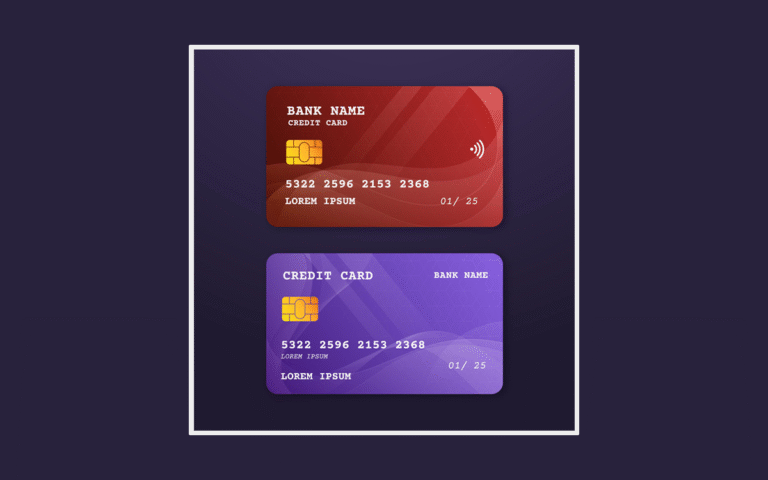Credit Card vs. Debit Card in Nepal: Which One Should You Use?

In today’s digital world, carrying plastic money is more convenient than handling cash and in Nepal, both credit and debit cards have become common tools for managing finances. Whether you’re shopping online, paying bills, or booking flights, these cards simplify the process. But despite looking similar, credit cards and debit cards function very differently and come with unique advantages and drawbacks.
If you’re unsure which card suits your needs in Nepal’s banking ecosystem, this guide will help you compare both and make an informed decision.
What Is a Debit Card?
A debit card is directly linked to your bank account. When you use it for a transaction, the amount is deducted immediately from your available balance. It’s your own money that you’re spending.
- ATM withdrawals (e.g., Global IME, Nabil, NIC Asia, etc.).
- POS and QR payments.
- Online shopping from local stores (eSewa, Daraz, etc.)
- No interest or debt involved.
- Helps control spending.
- Widely accepted in local markets.
- Usually comes free with a bank account.
- No credit score impact.
- Basic fraud protection.
- Limited to the available balance in your account
What Is a Credit Card?
A credit card gives you access to borrowed money from your bank or card issuer. You can make purchases or cash withdrawals up to a pre-approved credit limit and repay it later. If not repaid on time, interest is applied.
- POS and QR payments.
- Online shopping from local stores like Daraz.
- Buy now, pay later flexibility
- Emergency backup
- Helps build credit history
- Some cards offer travel benefits, discounts, or reward points
- Section 75-like protection (international purchases)
- Interest if not paid in full monthly
- Late payments can harm credit score
- May involve annual or transaction fees
- Not as widely accepted in small local stores
Key Differences Between Credit and Debit Cards
| Feature | Debit Card | Credit Card |
|---|---|---|
| Source of Funds | Own bank balance | Borrowed from bank |
| Interest Charges | No | Yes, if unpaid on time |
| Spending Limit | Account balance | Pre-approved credit limit |
| Impact on Credit Score | No | Yes |
| Fraud Protection | Limited | Stronger protection, esp. for international use |
| Cash Withdrawals | Free at own bank ATMs | Charges may apply with interest |
| Acceptance | Widely accepted in Nepal | May not be accepted by all local merchants |
| Ideal For | Daily spending, budgeting | Travel, large purchases, credit-building |
Banks Offering Credit and Debit Cards in Nepal
There are currently 20 A-class commercial banks in Nepal. Almost all of them offer credit cards, while every bank provides debit cards by default when you open a bank account.
When to Use Each in Nepal ?
- You want to manage daily expenses and stick to your budget.
- You are a student or new earner with limited banking experience.
- You prefer not to pay interest or get into debt.
- You want emergency access to funds.
- You travel frequently or make international purchases.
- You are building or improving your credit history.
- You want cashback, discounts, or loyalty rewards.
Tip: Many Nepali consumers hold both a debit card for daily use and a credit card for emergencies or large expenses.
Available Card Types in Nepal
- Visa and Mastercard: Most common for both debit and credit cards.
- UnionPay: Accepted in limited merchants.
- Prepaid Cards: Useful for online payments and controlled spending
Things to Consider Before Choosing
- Annual and renewal fees (especially for credit cards).
- Foreign transaction fees
- Acceptance in local shops or online stores
- Your repayment discipline
- Rewards, offers, and customer support by the bank
FAQs: Credit Card vs. Debit Card in Nepal
A debit card uses your own bank balance for transactions, while a credit card allows you to borrow money up to a credit limit that you repay later.
No, using a debit card does not impact your credit score because it doesn’t involve borrowing or repayment history.
Yes, many credit cards issued in Nepal (such as by Nabil or Standard Chartered) support international transactions, but foreign transaction fees may apply.
Credit cards generally offer better fraud protection and dispute resolution compared to debit cards, making them safer for online shopping.
Conclusion
In Nepal, both debit and credit cards have their place depending on your financial habits and needs. A debit card helps you control spending and avoid debt, while a credit card offers more flexibility and can help build your financial reputation if used responsibly.
Before applying for either, evaluate your lifestyle, income stability, and repayment discipline. Most importantly, understand the terms, charges, and benefits your bank offers. Whether you bank with Global IME, Nabil, NIC Asia, or others, the right card can make money management in Nepal easier and safer.
Read More: List of commercial banks in Nepal.

















